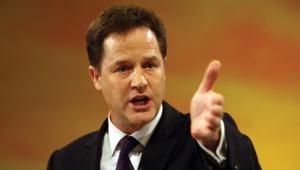By Jaimie Kaffash
12 October 2010
The Liberal Democrats will back Lord Browne’s recommendations on higher education funding but might push for employers to contribute more, a leading LibDem peer has told Public Finance.
Lord Willis, who during the last Parliament chaired the Commons innovation, universities, science and skills select committee, said there were significant ‘flaws’ with the graduate tax, which he and Business Secretary Vince Cable had previously supported. He added that Browne’s proposal for a Student Finance Plan was a ‘fair compromise’.
Browne’s report, published today, recommended that universities be allowed to set their own fee levels, which will be paid off after a student graduates.
There has been speculation that some LibDem MPs will oppose the proposals. The party fought the general election on a platform opposing tuition fees, but Willis said: ‘I don’t believe there will be a LibDem rebellion. I believe the party is mature enough to recognise that it is a very different scenario being part of a government and facing the largest fiscal deficit the nation has ever seen.
‘Our twin objectives of trying to maintain a world-class higher education system and universal access to it have largely been achieved by the Browne recommendations.’
However, he added: ‘I would be the first to accept in an ideal world we would like the state and employers to put a great deal more into the pot than they are at the moment. I am pretty sure that, in the passage of any legislation, the party will be seeking to make further improvements in the offer.’ He said he thought it would be accepted by Parliament, ‘with some amendments’.
There were two significant flaws that meant the graduate tax was not viable, he added. First, European Union students would be able to get a ‘free education’, with no recourse to get them to pay the tax if they return to their country of origin after they have graduated. ‘That clearly would be grossly unfair,’ Willis said.
Secondly, there was the problem of getting Treasury to ring-fence graduate-tax revenue for higher education. ‘The reality is that it is extremely difficult, because you cannot hold incoming governments to continue policies of outgoing ones,’ he said.
Business Secretary Vince Cable told Parliament this afternoon: ‘There are some key features in the current proposal for progressive graduate contributions which incorporate the best features of a graduate tax. It would be collected through the pay packet at a rate of 9p in the pound above the £21,000 threshold; combined with a real interest rate as Browne recommends, it would be progressive and related to ability to pay.
‘But Browne identifies serious problems with a “pure” graduate tax. The proposal is unworkable; does not produce sufficient revenue to finance higher education until 30 years from now; weakens university independence; and is unfair to British graduates as opposed to graduates living overseas.’




















